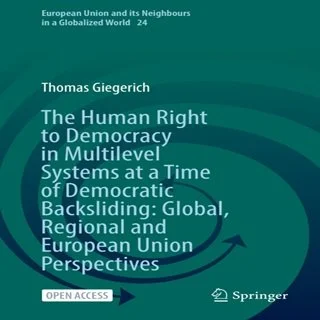By Thomas Giegerich
This open access book takes stock of the current situation of the human right to democracy in multilevel systems of government - at a time of renewed struggles with antidemocratic forces (democratic backsliding). It tries to answer three questions: (1) Is there a human right to democracy in contemporary global and regional international law as well as European Union law and what consequences does that have for the States’ governmental structure (top-down perspective on national democracy)? (2) Does the human right to democracy also extend to decision-making at the international and supranational level (bottom-up perspective on international/supranational democracy)? (3) What is the relation between national democracy and international democracy and the corresponding human entitlements (interdependence perspective)? The first part of an answer to these questions derives from the elements of democracy proclaimed by the United Nations as a universal value. The second part results from an investigation of the national and international democratic ingredients of the right of self-determination of peoples, whose recognition and codification is the mainstay of the human rights revolution since 1945. The third part is added by a survey and comparison of the various democratic rights included in the global and regional human rights treaties that constitute the subjective cornerstones of democracy. The fourth part is devoted to analysing the EU as exemplary but imperfect multilevel democracy. In all these parts, the enforcement of democratic entitlements are also discussed. In the fifth part, conclusions will be drawn. The book is addressed to international and EU law experts as well as political scientists.
Cham: Springer Nature, 2026.












